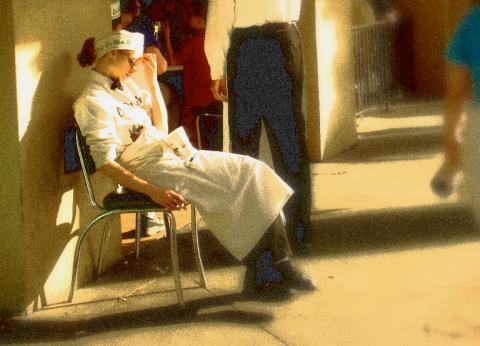The assault on Ireland's working poor

Together with other civil society organisations – the Spectacle of Defiance and Hope, the Campaign Against Household and Water Taxes, and the Communities Campaign Against the Cuts – the Dublin Council of Trade Unions is organising an Anti-Austerity March on 24 November. In a ’30 day countdown’ to the event, we have been publishing daily ‘Reasons to March’ – short fact-sheets illustrating what austerity is doing to individuals, society and the economy. Two of our ‘Reasons to March’ focus on low pay – in both the private and public sectors.
Along with those dependent on social protection, the low-paid – the working poor – have borne the brunt not only of the recession itself, but also of the austerity measures which have deepened and prolonged the recession.
While low-paid workers are found everywhere (including in the public sector, where starting pay can be as little as €420 per week), many of them are concentrated in the hospitality, retail and support services sectors. These sectors have been particularly hard-hit by the austerity-fuelled collapse in consumer demand, with nearly 80,000 workers in these areas losing their jobs since the onset of the crisis.
Many of those who have kept their jobs have seen their weekly earnings fall due to cuts in wages or hours, or both. On average, hospitality workers have seen their weekly earnings drop by more than 10%.
Claims that ‘we all pay ourselves too much’ ring hollow in the ears of Ireland’s low-paid army – public and private.
The average hourly labour costs for wholesale/retail workers here are 18% below the average in other core-EU countries, while labour costs in the hospitality sector lag 16% behind the average. Rather than being over-paid, workers here would need substantial pay increases just to reach the average in most other EU-15 countries.
And thousands of public sector workers eke out a living on wages as low as €420 a week. Even before the 5% pay cut in 2010, their pay was well below that for comparable workers in many other European countries.
Low earners have seen their pay packets further whittled away by the extra taxes imposed in recent Budgets: A low-paid worker on €9.75 per hour has been hit for over €1,000 in tax increases over the last four years. And that’s not counting increases in VAT – which hit low-income groups hardest – and the regressive Household Charge.
Low-paid workers, like other low-income groups, are disproportionately dependent on public services – services being hollowed out by successive rounds of spending cuts.
And many low-paid workers have also been at the forefront of so-called labour market reforms, such as changes to the Joint Labour Committee system which have resulted in workers losing most of their Sunday premium – a necessary source of income for many. Joint Labour Committees previously set wages above the legal minimum – but Governmental delay in legislating on foot of the High Court case means that, for many workers, the minimum wage is now a maximum wage.
Low earners have also borne the brunt of other policy measures, ranging from Social Protection changes reducing the supplement to some part-time workers to the Government incentives to employers to offer part-time rather than full-time work, thus reducing their PRSI bill. The trade union MANDATE recently surveyed its members and found an alarming increase in involuntary part-time work: in those willing and able to work more hours, but denied them by their employers.
Falling wages, fewer hours, higher taxes and charges – low-paid workers are finding their living conditions collapsing. One frightening statistic is that nearly one-in-four households with one income suffer multiple deprivation experiences. That means there is a reasonable chance that the waiter who serves your meal, the cleaner who looks after your workplace, or the shop worker who sells you your morning paper, experiences deprivation at home. They may be unable to afford a substantial meal twice a week, or new shoes, or adequate heating.
They are the working poor.
They spend everything they have in the economy – because they have to. And every euro taken out of the pocket of a low-paid worker is a Euro taken out of the economy.
Austerity economics is damaging to society and individuals – and is resulting in a stagnant economy marked by low growth and high unemployment. On 24 November, we have a chance to make our voices heard and demand a change in direction.
Mick O'Reilly is president of the Dublin Council of Trade Unions.
Image top: moroccanmary.
